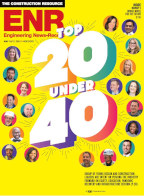Colorado State University engineers will collaborate with RTI International and others to develop a waterless toilet that converts human waste into burnable fuel and disinfected, non-potable water.
The “Reinvent the Toilet Challenge,” made possible by a grant from the Bill & Melinda Gates Foundation to RTI International, could significantly improve public health and quality of life among people in developing countries.
RTI’s design will accomplish three primary functions: disinfect liquid waste, dry and burn solid waste, and convert the resulting combustion energy into stored electricity. The system also includes innovations to improve operational utility, energy efficiency and cost.
RTI will partner with CSU’s Engines and Energy Conversion Laboratory (EECL), Duke University, NASA’s Ames Research Center and the U.S. Naval Research Laboratory to develop a prototype.
CSU’s role will be to develop the drying and combustion sub-system for the toilet in coordination with the rest of the team. This work leverages the EECL’s previous work in biomass combustion in developing world applications. The EECL is a large-scale, clean-energy research facility with expertise in engines and engine controls, biofuels, smart grid and vast experience in technology development for deployment in the developing world.
“Much of our work has been done at the village scale – clean-burning biomass cook stoves, small-scale islanded electric grid work, small farm irrigation, and solar lighting,” said Morgan DeFoort, co-director of the CSU lab. “We’re excited by the prospects of helping to develop a novel waste disinfection system.”
“Four out of 10 people worldwide don’t have a safe, reliable means to dispose of their waste – and the infrastructure doesn’t exist to treat that waste like we do in the developed world,” DeFoort said. “This fits with our mission to create innovative energy solutions and entrepreneurial models that benefit the human condition. Turning human waste into a valuable resource will certainly benefit the human condition, and go a long way towards mitigating the health impact of poor sanitation the world over.”
Research at the engines lab led to the creation of Envirofit International, a private, non-profit technology leader using sustainable, scalable business models to solve global health and environmental problems. CSU, Envirofit and Oak Ridge National Laboratory have been honored by the Federal Laboratory Consortium for designing and disseminating a cleaner-burning cook stove that is directly helping households throughout the developing world. Led by DeFoort, students and faculty at CSU continue to improve cook-stove technology.


Post a comment to this article
Report Abusive Comment